
Table of Contents
- Understanding ADHD in Adult Women
- Female ADHD Checklist: Common Traits and Characteristics
- Why ADHD Is Often Underdiagnosed or Untreated in Women
- The Hidden Struggles of Living with Untreated ADHD
- Consequences of Untreated ADHD in Female Adults
- Diagnosis and Treatment Options for ADHD in Women
- Strengths and Positives of ADHD in Women
- Getting Help for Untreated ADHD in Adult Females
- FAQs
- Untreated ADHD in Female Adults: Conclusion
In Focus
- Untreated ADHD in female adults often presents as inattention, emotional dysregulation, time blindness, and chronic overwhelm.
- Many women mask symptoms through perfectionism and overcompensation, delaying diagnosis and support.
- Hormonal changes can intensify focus, mood, and energy fluctuations across the menstrual cycle, pregnancy, and menopause.
- Untreated ADHD can affect relationships, work performance, self-esteem, and long-term wellbeing.
- An assessment helps identify ADHD patterns that are frequently missed in women.
Many women reach adulthood still wondering why life feels harder than it should. They may experience constant distraction, emotional overwhelm, unfinished tasks, and exhaustion from trying to “keep up.” What they often don’t realise is that these challenges may stem from untreated ADHD in female adults.
Unlike the hyperactive stereotype seen in boys, ADHD in women tends to appear as chronic forgetfulness, emotional sensitivity, and mental burnout from masking symptoms to meet expectations. When left undiagnosed, it can quietly affect daily life, mental health, and relationships, often leading to anxiety or low self-esteem.
Recognising the signs early can make a life-changing difference, opening the door to effective support, treatment, and self-understanding. If you or a loved one living with ADHD is looking for tailored treatment for your unique struggles, book a call with us, and we’d be glad to craft a treatment plan designed for you.
Understanding ADHD in Adult Women
For many adult women, the signs of Attention-Deficit Hyperactivity Disorder (ADHD) often appear subtle and easy to dismiss. Instead of the restless hyperactivity seen in young boys, ADHD in women often manifests as chronic disorganisation, difficulty maintaining focus, and emotional sensitivity that affects both work and personal life. Because these traits don’t fit the traditional picture of ADHD, countless women live undiagnosed or misunderstood for decades.
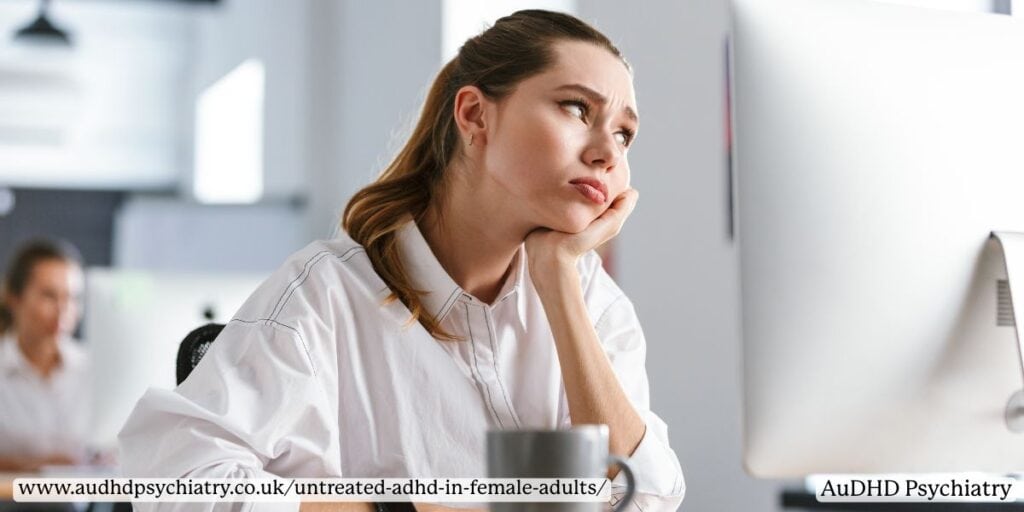
What ADHD Looks Like in Adult Females
Women with ADHD frequently experience the inattentive subtype, which can lead to misplaced priorities, missed deadlines, or losing focus mid-conversation. Unlike hyperactive children, many adult women struggle quietly, appearing responsible on the surface but feeling mentally scattered underneath.
Common traits include:
- Difficulty sustaining focus during repetitive or uninteresting tasks
- Forgetting appointments or losing track of time
- Overcommitting due to impulsivity or difficulty saying no
- Feeling mentally “cluttered” even when physically organised
This inner chaos is often mistaken for stress, anxiety, or lack of motivation. Societal expectations, such as being organised, emotionally composed, or nurturing, amplify these struggles.
Common ADHD Symptoms and Behaviours in Women
The symptoms of ADHD in women extend beyond attention issues. Many experience a constant mental hum — a mix of impulsive thoughts, emotional intensity, and shifting focus. Forgetfulness, restlessness, and difficulty finishing projects are common, but so are periods of intense hyperfocus, where attention narrows completely on one interest or task. These fluctuating extremes often lead to exhaustion or burnout, especially when paired with perfectionism or people-pleasing tendencies.
High-Functioning ADHD and Masking in Women
Many women develop sophisticated coping mechanisms—a form of masking that helps them appear capable and composed. This might look like over-preparing for meetings, overworking to prove competence, or constantly apologising for small mistakes. These behaviours can create the illusion of high functioning while concealing the exhaustion beneath.
Masking is especially common in social situations where women feel pressured to “fit in.” Over time, this has the tendency to cause emotional burnout and delayed diagnosis. For strategies to break this cycle, ADHD and Waiting Mode – 10 Tips to Get Unstuck offers practical steps to regain momentum.
Female ADHD Checklist: Common Traits and Characteristics
Recognising untreated ADHD in female adults starts with understanding how it commonly appears in day-to-day life. While symptoms vary from person to person, many women share similar traits linked to attention, emotion, and sensory processing. This female ADHD checklist can help identify patterns worth discussing with a healthcare provider.
1. Social Interaction and Communication
Women with ADHD often misread social cues, interrupt unintentionally, or struggle to maintain conversations. Overthinking interactions and replaying them afterwards is also common. These difficulties can strain friendships and lead to social problems, including social anxiety [2].
2. Repetitive Movements and Restlessness
Subtle forms of hyperactivity, such as fidgeting, nail-biting, or tapping feet, often persist into adulthood. Many women describe an inner restlessness rather than visible overactivity, especially in quiet or structured environments.
3. Sensory Sensitivities and Overload
Some women experience heightened responses to sound, texture, or light, while others feel under-stimulated and seek sensory input. This sensory overload can cause irritability, withdrawal, or fatigue.
4. Intense Interests and Hyperfocus
ADHD can bring bursts of passion for specific subjects, hobbies, or creative pursuits. These “hyperfocus” states can be productive but may lead to neglecting other tasks or basic needs.
5. Emotional Regulation and Mental Health
Emotions can feel unpredictable: from frustration and guilt to tears and sudden irritability. Many women with ADHD also experience emotional dysregulation and are prone to anxiety or low mood. Learn more about this in ADHD and Emotional Dysregulation.
6. Executive Function Challenges
Planning, prioritising, and managing time can feel like an uphill battle. Many women rely on reminders, apps, or lists to stay organised. ADHD Tools for Daily Tasks can help manage these, though it may take trial and error to find the best tools that work for your lifestyle.
7. Coping Mechanisms and Masking
Perfectionism, humour, or overachievement are common defence strategies for hiding ADHD-related difficulties. While these coping mechanisms may maintain appearances, they often lead to fatigue and self-doubt.
8. Eye Contact and Personal Space
Difficulty maintaining eye contact or sensing social distance can lead to awkward moments. These are not signs of rudeness but expressions of neurodivergent processing.
Recognising these ADHD traits in women can be validating, offering a clearer picture of why everyday tasks or relationships may feel more difficult. The goal isn’t to self-diagnose but to increase awareness and confidence in seeking help.
Why ADHD Is Often Underdiagnosed or Untreated in Women
Despite increasing awareness, ADHD in adult women often remains unrecognised or misdiagnosed [1]. Many women grow up believing their struggles are due to stress, personality flaws, or poor time management, not ADHD. In reality, gender bias and diagnostic gaps have left generations of women unsupported.
Social and Cultural Factors
Historically, ADHD has been viewed as a childhood condition affecting mainly boys. Because girls tend to display fewer disruptive behaviours, inattentive symptoms often go unnoticed. Many learn to stay quiet, overcompensate, or internalise frustration, which leads to emotional exhaustion rather than outward hyperactivity.
These social expectations—excelling in school, managing family life, or appearing “composed”—make ADHD symptoms easier to mask. Over time, this contributes to chronic stress, burnout, and untreated ADHD. To understand how bias due to gender differences affects diagnosis more broadly, see ADD vs ADHD, which explains how these outdated labels still shape perception today.
Hormonal and Biological Influences
Fluctuating hormone levels can intensify ADHD symptoms at different life stages. For example, oestrogen plays a key role in dopamine regulation, a neurotransmitter linked to focus and motivation. As hormone levels change during puberty, the menstrual cycle, pregnancy, or menopause, many women notice shifts in concentration, mood, and energy.
Recent research suggests that hormonal fluctuations may also impact medication effectiveness and emotional regulation. Understanding this relationship helps clinicians tailor ADHD treatment plans more effectively for women across the lifespan.
Misdiagnosis and Comorbidities
Because ADHD symptoms often overlap with other mental health conditions, women are frequently misdiagnosed with anxiety disorder, depression, or bipolar disorder before ADHD is recognised. These conditions may coexist, but treating only one can leave underlying ADHD unmanaged, perpetuating cycles of emotional instability and self-blame.
A correct and timely diagnosis can transform quality of life. For more insight into late discovery, visit Adult ADHD Late Diagnosis, which explores how understanding these overlaps can prevent years of misunderstanding and misdirected treatment.
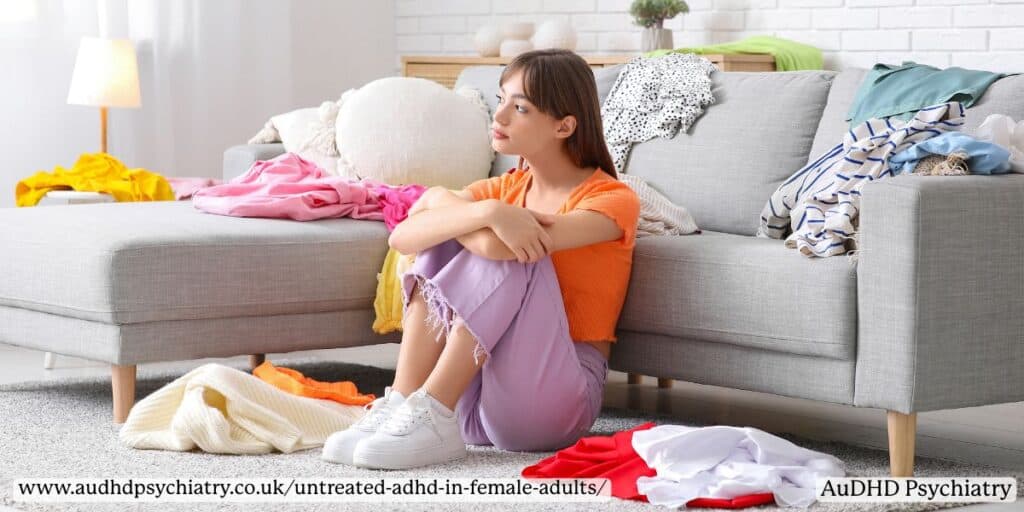
The Hidden Struggles of Living with Untreated ADHD
Living with untreated ADHD in female adults can feel like constantly running behind, even when you’re doing everything “right.” Women often describe feeling scattered, drained, or disconnected, despite working twice as hard to stay organised or keep up appearances. These hidden struggles take a toll on both emotional health and self-esteem. These hidden signs of untreated ADHD take a toll on both emotional health and self-esteem.
Emotional Dysregulation and Mental Health
One of the most significant effects of untreated ADHD is emotional dysregulation: intense mood swings, frustration, or sadness that can feel disproportionate to the situation. When unmanaged, these fluctuations may lead to anxiety, depression, or chronic stress.
Therapies such as cognitive behavioural therapy (CBT) can help women recognise thought patterns and build better emotional coping skills.
Impact on Relationships, Career, and Self-Esteem
Untreated ADHD can strain romantic relationships, friendships, and work performance. Forgetting commitments or reacting impulsively can be mistaken for carelessness, leading to misunderstandings with loved ones and colleagues.
Career-wise, women may experience difficulty meeting deadlines or maintaining focus during long tasks, which impacts confidence and progression. Poor time management or disorganisation can result in chronic overwhelm and guilt—feelings that reinforce low self-worth.
Daily Life Challenges
From running late to forgetting appointments, the daily frustrations of adult ADHD can make life feel like an uphill climb. Many women rely on reminders, ADHD apps, or planners to beat struggles like task paralysis, but when ADHD is untreated, these tools can only do so much.
Executive function challenges like disorganisation, impulsivity, and lack of focus can also trigger chronic stress and decision fatigue. If these challenges resonate with you and you’re ready to receive help managing ADHD symptoms, we’re here for you. Book a call and let’s chat about your unique situation. Then, we’ll create a treatment plan to improve your quality of life and address symptoms you may be dealing with.
Consequences of Untreated ADHD in Female Adults
Leaving ADHD untreated doesn’t just make daily life harder. It can influence nearly every aspect of well-being. Women who reach adulthood without a diagnosis often report feeling “behind” in their careers, relationships, or personal goals, despite putting in significant effort.
Over time, the lack of understanding and treatment can contribute to mental health challenges, emotional fatigue, and even physical health risks. Recognising the long-term effects of untreated ADHD in female adults is essential to breaking the cycle of self-blame and burnout.
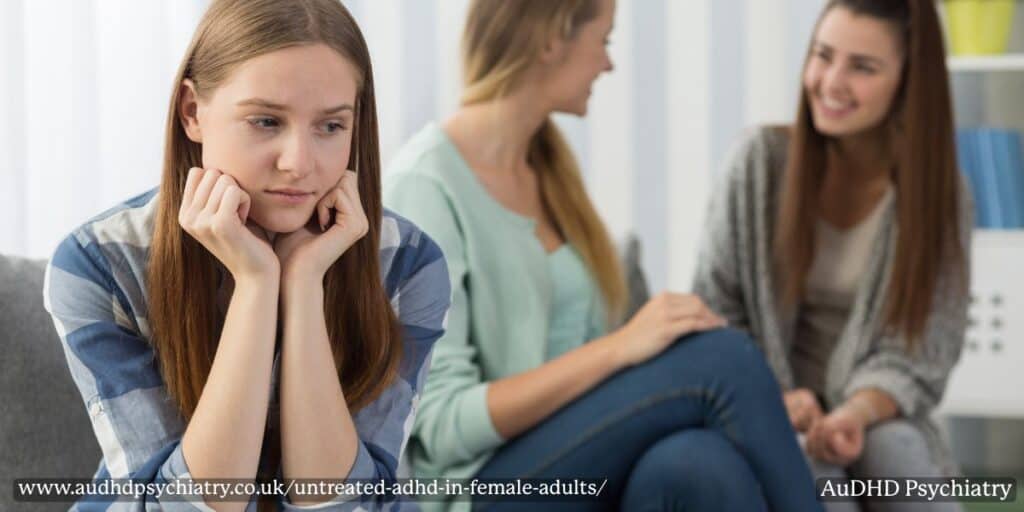
How Undiagnosed ADHD Affects Daily Functioning
Without structured support, daily responsibilities like managing deadlines, paying bills, or staying organised can become overwhelming. Women may describe constantly “firefighting”: reacting to problems rather than preventing them. This pattern affects work, relationships, and home life.
These struggles often go unnoticed by others, leading to feelings of isolation and frustration. While some find temporary relief through coping strategies, professional diagnosis and treatment provide a clearer path to sustainable balance.
Long-Term Health and Social Impact
Research links untreated ADHD to increased risk of substance misuse, alcohol use, and chronic stress. These behaviours often emerge as attempts to manage anxiety or restlessness. Over time, this stress can strain the heart, immune system, and overall quality of life.
Socially, many women experience guilt for falling short of expectations, especially when comparing themselves to neurotypical peers. To explore alternative coping routes, read Alternatives to ADHD Meds, which discusses non-pharmacological supports that complement treatment.
The Good News: ADHD Is Manageable
The outlook for women with ADHD is positive when appropriate care is in place. With the right combination of therapy, medication, and self-management tools, symptoms can be controlled and strengths amplified.
Many women find renewed focus, motivation, and calm after receiving treatment. AuDHD Psychiatry provides a balanced overview of available medication options and how they fit into a holistic care plan.
Diagnosis and Treatment Options for ADHD in Women
Identifying ADHD in adult women can be life-changing, offering clarity after years of confusion. The diagnostic process involves recognising behavioural patterns, evaluating executive function, and ruling out other mental health conditions.
Early diagnosis and treatment should be prioritized as it’s not just crucial for managing symptoms, but also for rebuilding self-esteem and improving long-term well-being.
Getting an Accurate ADHD Diagnosis
An accurate ADHD diagnosis starts with a structured assessment conducted by qualified professionals. In the UK, this typically includes an in-depth interview, self-report questionnaires, and feedback from family members or partners.
Want to learn more about how your options for an ADHD diagnosis? Check out:
- What to Expect at ADHD Assessment
- NHS vs Private ADHD Assessment Guide
- How to Get Tested for Neurodivergence
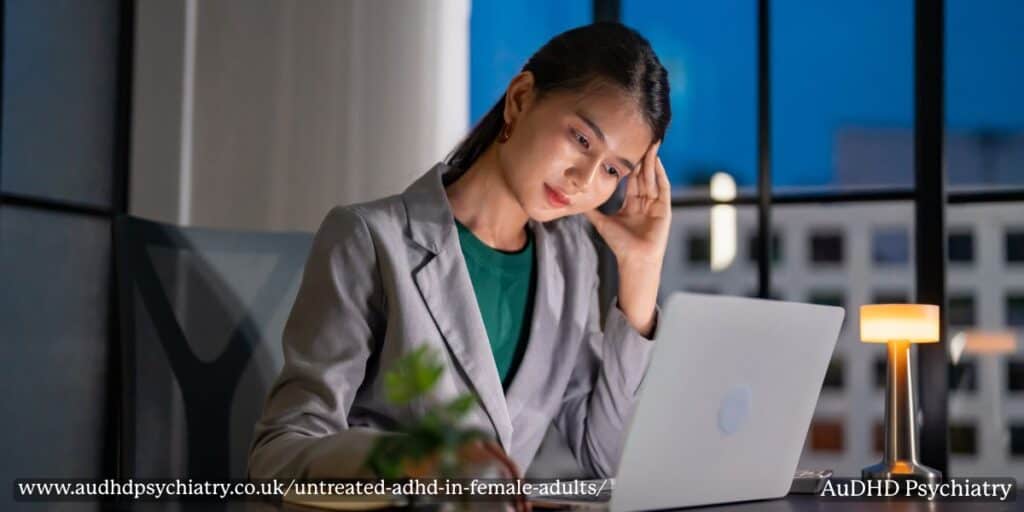
Treatment Options and Therapies
Once diagnosed, treatment may include stimulant or non-stimulant medication, cognitive behavioural therapy (CBT), and ADHD coaching. These methods help manage symptoms by improving focus, emotional regulation, and organisation.
Some women benefit from structured therapy sessions, while others prefer digital or coaching-based support.
Lifestyle Strategies and Support Networks
Medication alone isn’t always enough. Creating sustainable routines through mindfulness, balanced nutrition, and regular sleep can strengthen focus and mood stability. Support networks, both in-person and online, also play a vital role. Resources such as Access to Work can give you ideas on securing workplace accommodations.
Strengths and Positives of ADHD in Women
Although ADHD presents challenges, it can also bring unique strengths that often go overlooked. Many women with ADHD possess deep empathy, creativity, and resilience—traits that enable them to think differently, connect authentically, and problem-solve in unconventional ways.
Hidden Strengths and Creativity
Women with ADHD often channel their hyperfocus into artistic, academic, or professional excellence. Their passion for new ideas, people, and projects fuels creativity and innovation. This natural curiosity, when guided, becomes a major asset in dynamic environments.
A great example is featured in Nelly Furtado: How ADHD Diagnosis Fuels Her Creative Brilliance, which illustrates how diagnosis can turn self-doubt into empowerment.
Reframing the Narrative
Instead of viewing ADHD purely as a disorder, many women find empowerment in embracing neurodiversity. Understanding their brains’ unique patterns helps them replace self-criticism with self-awareness. This mindset shift encourages compassion and growth, showing that, with the right treatment and support, ADHD can become a foundation for strength rather than struggle.
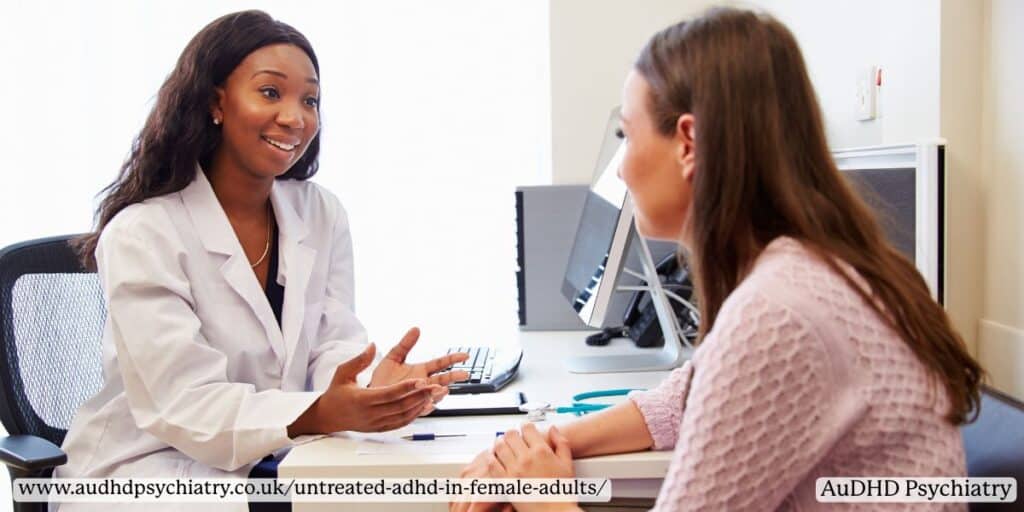
Getting Help for Untreated ADHD in Adult Females
Realising that you may have untreated ADHD can be both overwhelming and liberating. Many women reach this point after years of frustration, wondering why focus, organisation, or motivation always seem harder than they should be. The good news is that help is available, and seeking support is the first step toward clarity and confidence.
Taking the First Step Toward Diagnosis
If you suspect adult ADHD, start by speaking to your GP or a trusted ADHD specialist. Bring notes of your challenges, examples from work or home, and feedback from close friends or family members who understand your daily life. If you prefer a faster route or shorter waiting time, a private ADHD assessment can offer thorough and timely answers from qualified clinicians.
How AuDHD Psychiatry Can Help
At AuDHD Psychiatry, we specialise in identifying and supporting ADHD in women, including those who may have lived with untreated ADHD in adulthood for years. Our clinicians understand how symptoms present differently in females and provide compassionate, evidence-based assessments tailored to your needs.
Beyond diagnosis, our team offers a complete care pathway, including:
- Therapy and coaching to improve emotional regulation and executive functioning
- Medication management with ongoing clinical review
- Personalised support plans for home, work, or study settings
- Guidance on securing workplace adjustments and community resources
To begin your journey toward clarity, you can Book My Free Intro Call or Take the Free ADHD Test. These resources help you understand your next steps with the support of a qualified professional team.
FAQs
1. Does ADHD in adult women get worse with age if it goes untreated?
Yes. As responsibilities increase with work, parenting, or caregiving, untreated ADHD symptoms can feel more intense and harder to manage over time.
2. Is chronic burnout common in women with undiagnosed ADHD?
Very often. Years of compensating, masking, and pushing through executive dysfunction can lead to long-term exhaustion and burnout.
3. Can untreated ADHD in adults affect physical health in women?
Yes. Ongoing stress, poor sleep, and difficulty maintaining routines can contribute to headaches, fatigue, and other stress-related physical symptoms.
4. Why is ADHD in women often undiagnosed until adulthood?
Many women normalise their struggles, believing they should cope better or that their difficulties are not “serious enough” to seek assessment.
5. Can undiagnosed ADHD in women affect quality of life?
Yes. Even without anxiety or depression, untreated ADHD can reduce confidence, limit personal goals, and affect overall quality of life.
Untreated ADHD in Female Adults: Conclusion
Living with untreated ADHD in female adults can quietly erode self-esteem, mental health, and overall quality of life, but it doesn’t have to stay that way. Recognising that your struggles stem from attention-deficit hyperactivity disorder rather than personal failure is the beginning of change.
With an accurate ADHD diagnosis and a tailored treatment plan, focus, energy, and self-trust can all be rebuilt. Whether through medication, therapy, or structured coaching, progress is entirely possible with the right guidance.
If this article resonates with you or someone you know, don’t wait to seek support. Book a confidential assessment with AuDHD Psychiatry today to start your journey toward balance, clarity, and self-understanding.
References
- Attoe, D. E., & Climie, E. A. (2023). Miss. Diagnosis: A Systematic Review of ADHD in Adult Women. Journal of Attention Disorders, 27(7), 645–657. https://doi.org/10.1177/10870547231161533
- Quinn, P. O., & Madhoo, M. (2014). A review of Attention-Deficit/Hyperactivity Disorder in Women and Girls. The Primary Care Companion for CNS Disorders. https://doi.org/10.4088/pcc.13r01596
You Might Also Like
Contact Us
We’re here to answer any questions you might have.
Get in Touch
Opening Hours
Contact Form
We’re here to help. Reach out and we’ll get back to you within 24 hours (Monday – Friday).

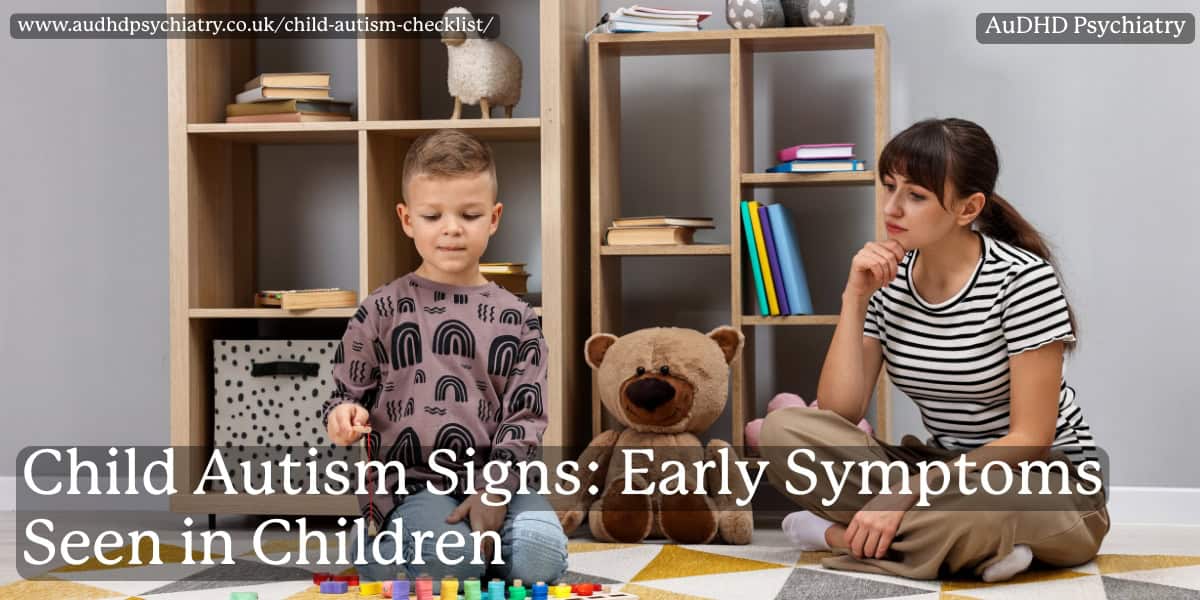
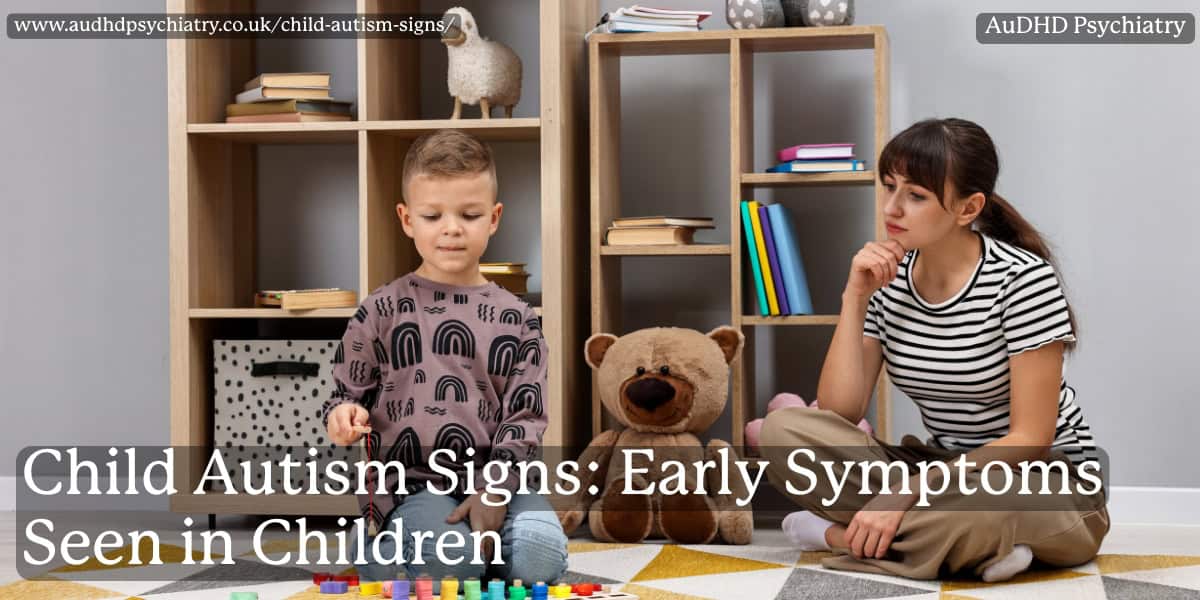

Leave a Reply